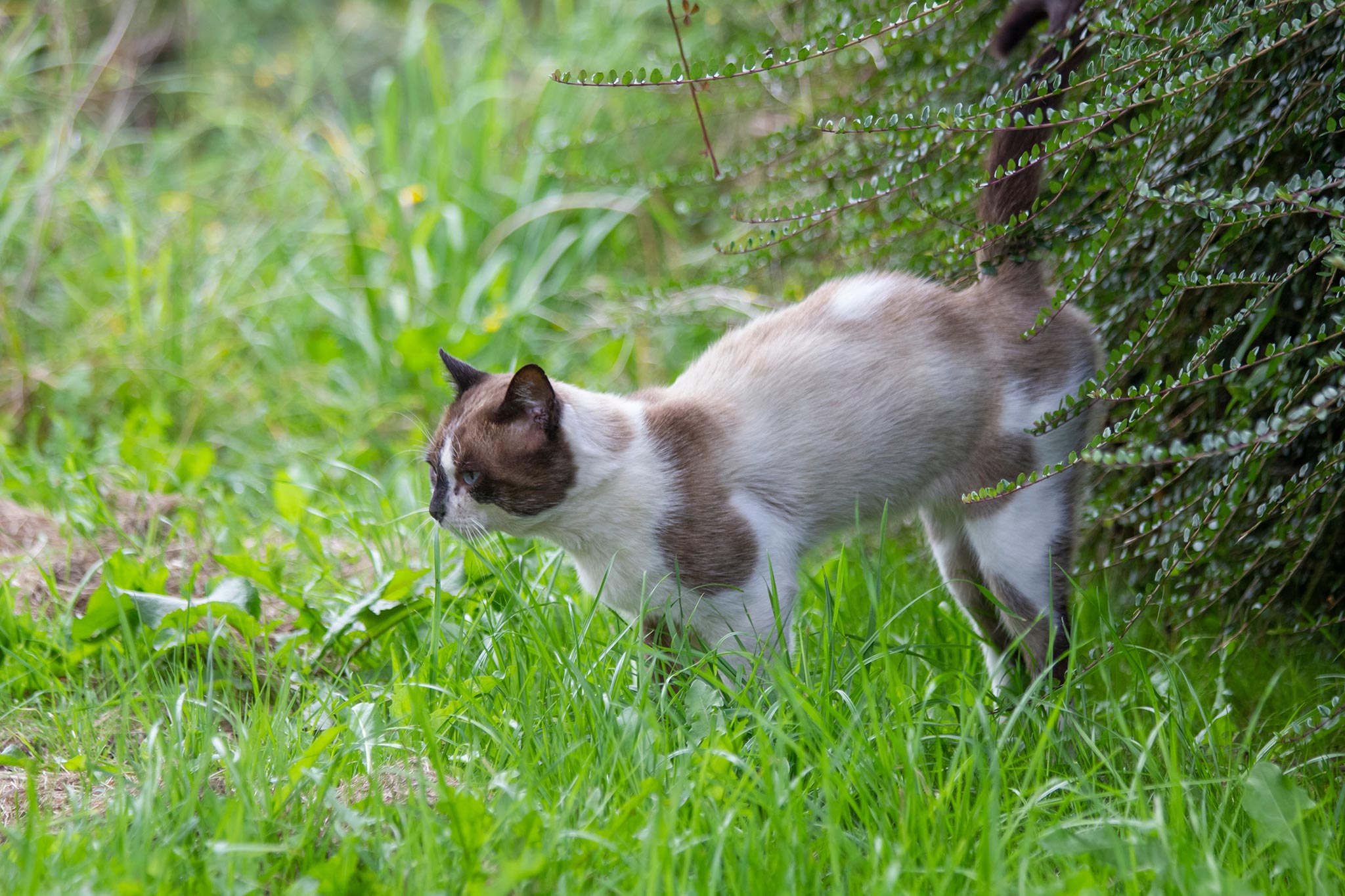Why Cats Spray and How to Stop this Behavior
Welcome to our latest blog post, where we tackle a topic many cat owners have questions about: cat spraying. Understanding why cats spray and what can be done to stop this behavior is key to maintaining a happy and stress-free home for both you and your pet. If you’re facing challenges with cat spraying, Carey Animal Hospital in Cincinnati, OH, is here to help. Our experienced team can provide you with guidance and support. For more information or to schedule an appointment, give us a call at (513) 531-7117.

Understanding Cat Spraying
Cat spraying is a form of communication for felines. Unlike typical urination, which is done in a squatting position, spraying is usually done while standing up. Cats spray urine to mark their territory, signal stress, or express other emotions. This behavior is common in both male and female cats, although it’s more prevalent in non-neutered males.
Spraying is different from a bathroom accident. It’s a deliberate act that involves releasing small amounts of urine on vertical surfaces, such as walls or furniture. Recognizing the difference is important for addressing the behavior effectively.
Reasons Behind Cat Spraying
Several factors can trigger cat spraying, including:
- Territorial Marking: Cats often spray to mark their territory, especially in homes with multiple pets where there’s competition for space.
- Stress: Changes in the home environment, such as moving, adding new pets, or even rearranging furniture, can stress cats and lead to spraying.
- Medical Issues: Sometimes, spraying can be a sign of a health problem. Urinary tract infections or kidney issues might cause discomfort, leading cats to spray.
- Unneutered Males: Male cats that haven’t been neutered are more likely to spray as a way to signal their availability to females.
Understanding the root cause is crucial for addressing the behavior effectively.
How to Stop Cat Spraying
Stopping cat spraying involves a combination of medical intervention, environmental changes, and behavioral strategies. Here are some steps you can take:
Neutering or Spaying
Neutering or spaying your cat can significantly reduce spraying behavior, especially in males. This procedure eliminates the hormonal drive to mark territory.
Stress Reduction
Creating a stable, stress-free environment can help prevent spraying. Consider ways to reduce competition among pets, provide plenty of playtime, and keep the home environment consistent.
Environmental Enrichment
Enhancing your cat’s environment with toys, climbing structures, and scratching posts can keep them stimulated and reduce the urge to spray.
Medical Evaluation
Since spraying can sometimes indicate a health issue, it’s important to have your cat checked by a veterinarian. At Carey Animal Hospital, we can assess your cat’s health and rule out any medical causes for spraying.
Clean Sprayed Areas Thoroughly
Use enzymatic cleaners to remove the scent of urine from sprayed areas. Cats are less likely to respray areas that don’t smell like urine.
Positive Reinforcement
Encourage your cat to use the litter box by offering treats and praise. Make sure the litter box is clean, accessible, and in a quiet area of your home.
Consult with Carey Animal Hospital
If you’ve tried these strategies and your cat continues to spray, it’s time to consult with a professional. Our team at Carey Animal Hospital can work with you to identify the cause of the spraying and recommend a personalized plan to address it. Sometimes, behavior modification therapy or medication may be necessary.
Spraying is a complex issue, but with patience and the right approach, it can be resolved. Our goal at Carey Animal Hospital is to ensure your cat is healthy and happy, and that you, as a pet owner, feel supported. If you’re dealing with cat spraying, don’t go it alone. Call us at (513) 531-7117 for more information or to make an appointment. Together, we can find a solution that works for you and your cat.

